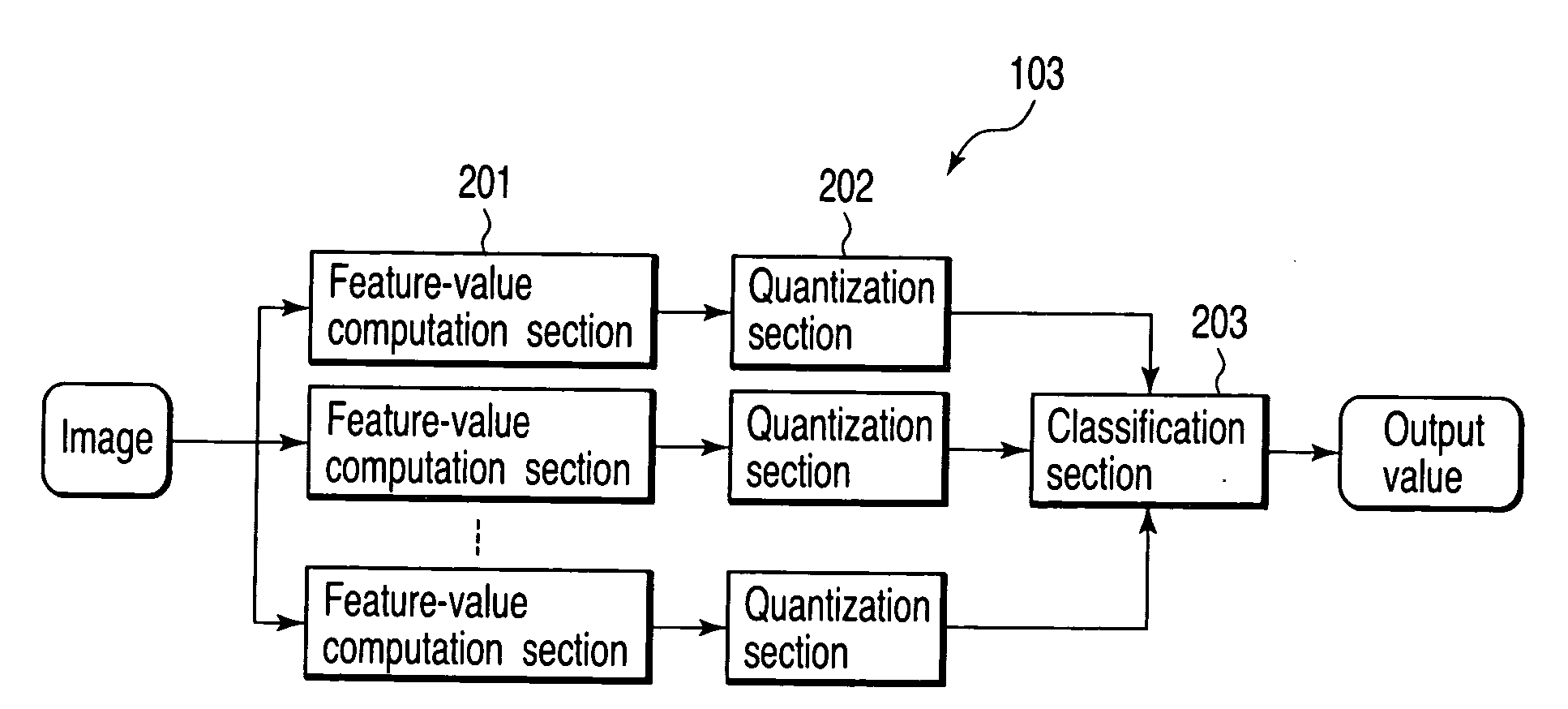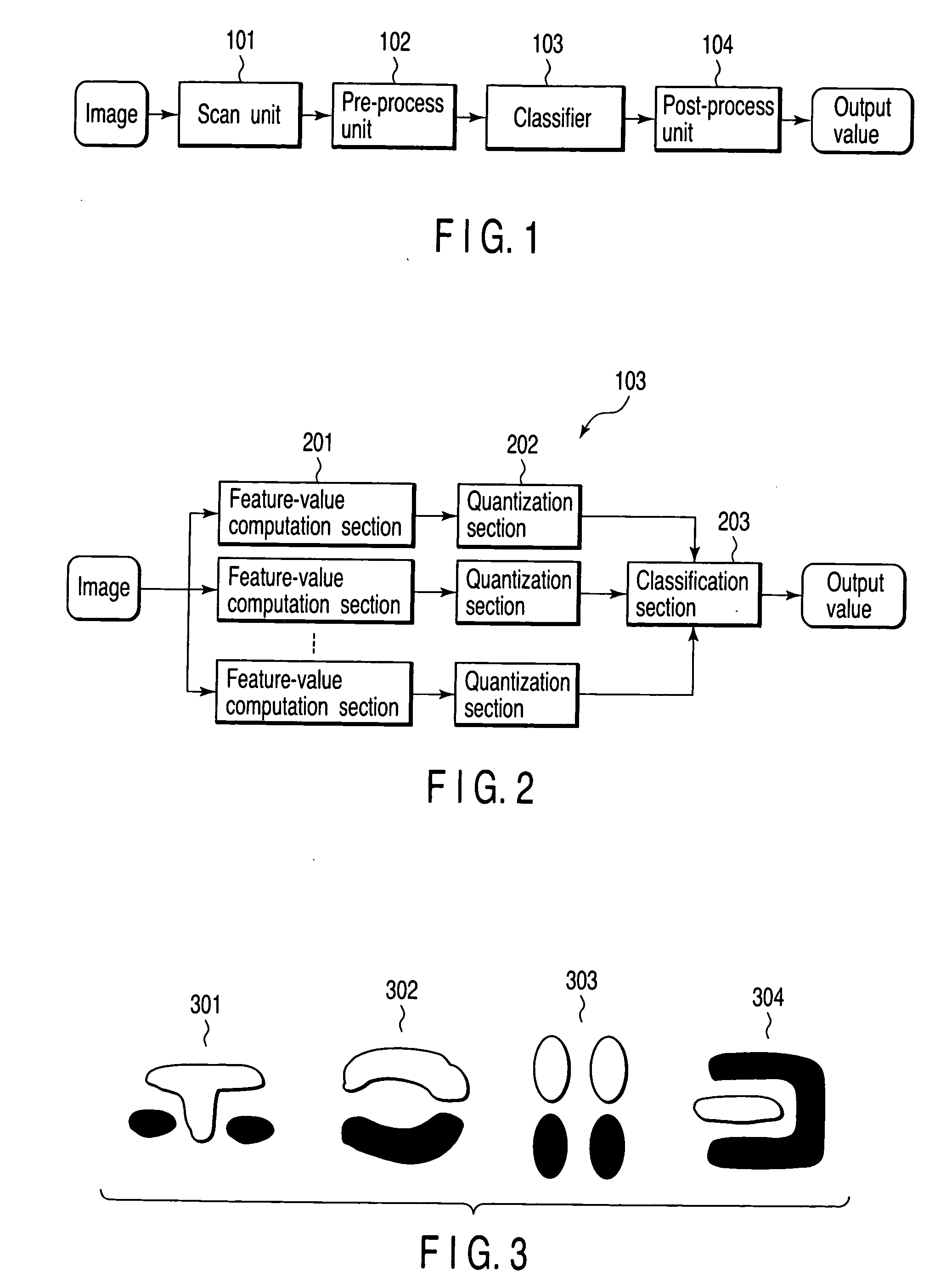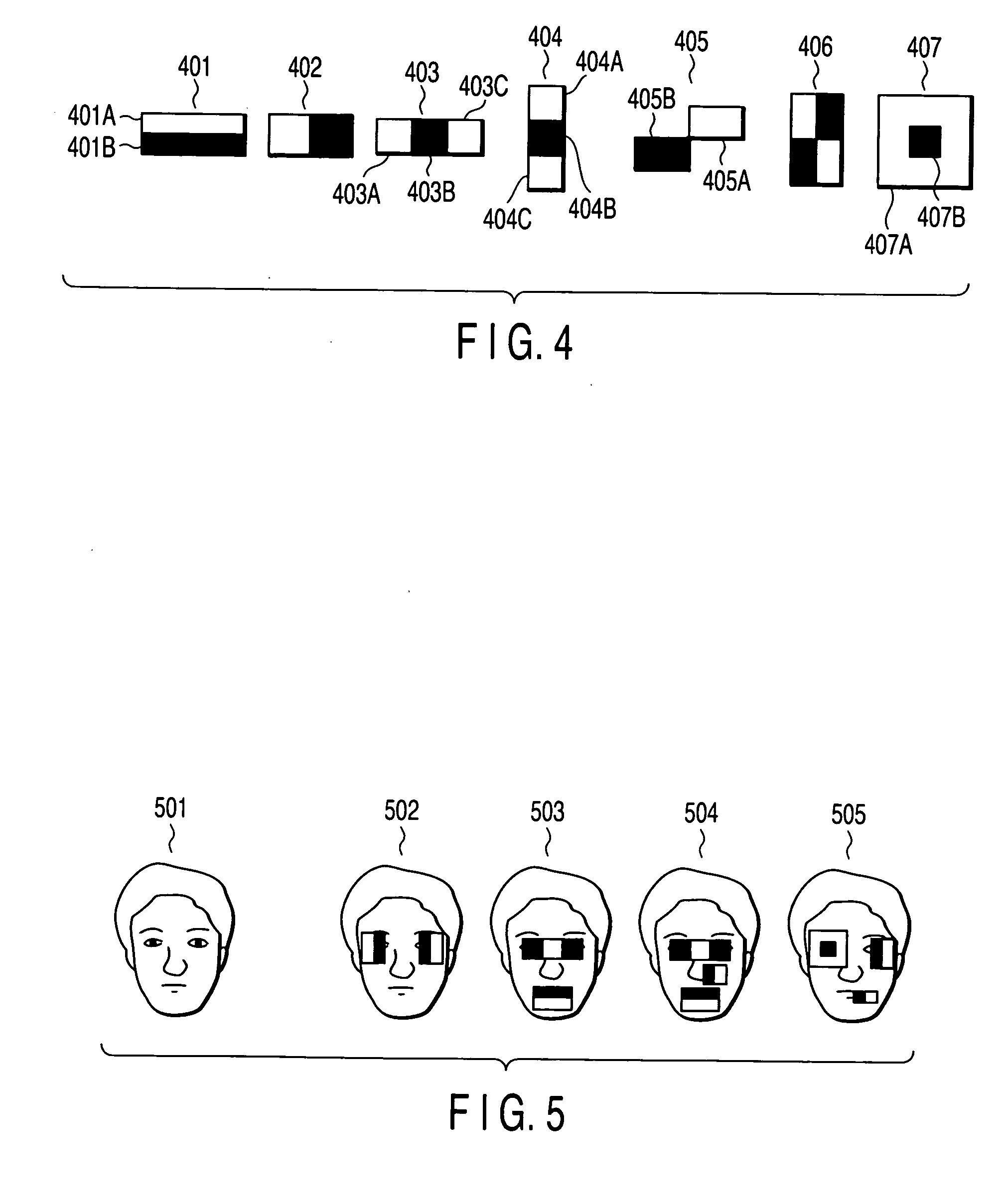Object detection apparatus, learning apparatus, object detection system, object detection method and object detection program
a technology of object detection and learning apparatus, applied in the field of object detection apparatus, learning apparatus, object detection system, object detection method and object detection program, can solve the problems of low recognition accuracy and low accuracy of low-accuracy classifier, and achieve the effect of minimizing increasing weight, and reducing the number of errors in determination results
- Summary
- Abstract
- Description
- Claims
- Application Information
AI Technical Summary
Benefits of technology
Problems solved by technology
Method used
Image
Examples
Embodiment Construction
[0048] Referring to the accompanying drawings, a detailed description will be given of an object detection apparatus, learning apparatus, object detection system, object detection method and object detection program according to an embodiment of the invention.
[0049] The embodiment has been developed in light of the above, and aims to provide an object detection apparatus, learning apparatus, object detection system, object detection method and object detection program, which can detect and enable detection of an object with a higher accuracy than in the prior art.
[0050] The object detection apparatus, learning apparatus, object detection system, object detection method and object detection program of the embodiment can detect an object and enable detection of an object with a higher accuracy than in the prior art.
[0051] (Object Detection Apparatus)
[0052] Referring first to FIG. 1, the object detection apparatus of the embodiment will be described.
[0053] As shown, the object det...
PUM
 Login to View More
Login to View More Abstract
Description
Claims
Application Information
 Login to View More
Login to View More - R&D
- Intellectual Property
- Life Sciences
- Materials
- Tech Scout
- Unparalleled Data Quality
- Higher Quality Content
- 60% Fewer Hallucinations
Browse by: Latest US Patents, China's latest patents, Technical Efficacy Thesaurus, Application Domain, Technology Topic, Popular Technical Reports.
© 2025 PatSnap. All rights reserved.Legal|Privacy policy|Modern Slavery Act Transparency Statement|Sitemap|About US| Contact US: help@patsnap.com



